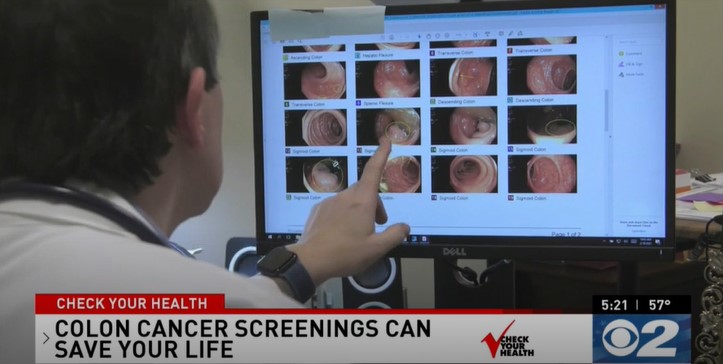In the United States, colorectal cancer is the third-leading cause of cancer-related death for men and women.
Every day, about 300 people in the United States will be diagnosed with colon cancer and an estimated 50,000 people die from colorectal cancer every year.
Intermountain Healthcare physicians want the public to know that colorectal cancer is preventable, treatable, and beatable with early detection.
According to studies, 2020 and 2021 saw dramatic drops in routine cancer screenings due to the COVID-19 pandemic. Specifically, colon cancer screening rates decreased by 86% across the country in 2020. Experts at Intermountain Healthcare saw an almost 50% decrease in colorectal screenings across the system.
“Further delays in screening could lead to a delayed cancer diagnosis,” said Nathan Merriman, MD, associate medical director of gastroenterology and digestive health at Intermountain Healthcare. “Screenings are designed to detect cancer early and early detection is more easily treatable so that you can have better outcomes.”
45 is the New 50 for Colon Cancer Screening
New national guidelines have changed from 50 to 45 to begin screening for colon cancer. So, who should be screened?
- Any man or woman aged 45 or older
- For people under 45
- Anyone with a close relative who has had colorectal cancer
- Anyone with a history of certain medical conditions that affect the colon
“Early screening, especially with colonoscopy, holds the promise of saving lives,” said Mark A. Lewis, MD, medical oncologist and director of gastrointestinal oncology at Intermountain Healthcare. “Many colorectal cancers begin as a small polyp, and if a polyp is found during colonoscopy, it can be removed, preventing the polyp from ever turning into cancer. Thus, colonoscopy can serve as both a screening and preventive tool.”
What are Major Risk Factors?
- Age: 90% of colorectal cancer occurs in adults over age 45, however rates are rising in people who are in their 40’s.
- Family History: If you have a close relative who has had colon cancer or a colon polyp, you may be at higher risk for getting the disease.
- Medical Conditions: Having an inflammatory bowel disease may increase your risk for developing colon cancer.
- Race: Rates of colorectal cancer are higher in African Americans compared with other races. This may be because fewer African Americans get screened for colon cancer.
- Lifestyle: There are some risk factors you can change. These include stopping smoking, improving your diet, keeping a healthy weight, and being active.
Other Screenings for Colon Cancer
In the past, one of the only ways to screen was a colonoscopy, which uses a camera system inserted into the colon to look for possible issues. New advancements allow people to screen more often using a Fecal Immunochemical Test (FIT) kit at home.
The FIT isn’t set to replace a colonoscopy, but can serve as a vital tool for regular monitoring for those with low to moderate risk of colorectal cancer. Physicians agree, If FIT results come back positive, a colonoscopy should be scheduled.
New research shows non-compliance with a colonoscopy after positive FIT results doubles the risk of dying.
A person can receive a FIT kit by having their doctor order them one. It is recommended people speak with their doctors to come up with a screening plan that’s right for them.
Always call your insurance company before undergoing any test or procedure to determine coverage and any other questions you may have. If you are 45 years old or older, talk to your doctor about which test is right for you.
For more information on FIT kits, colonoscopies, or to find a physician visit www.Intermountainhealthcare.com/cancer or go here.

